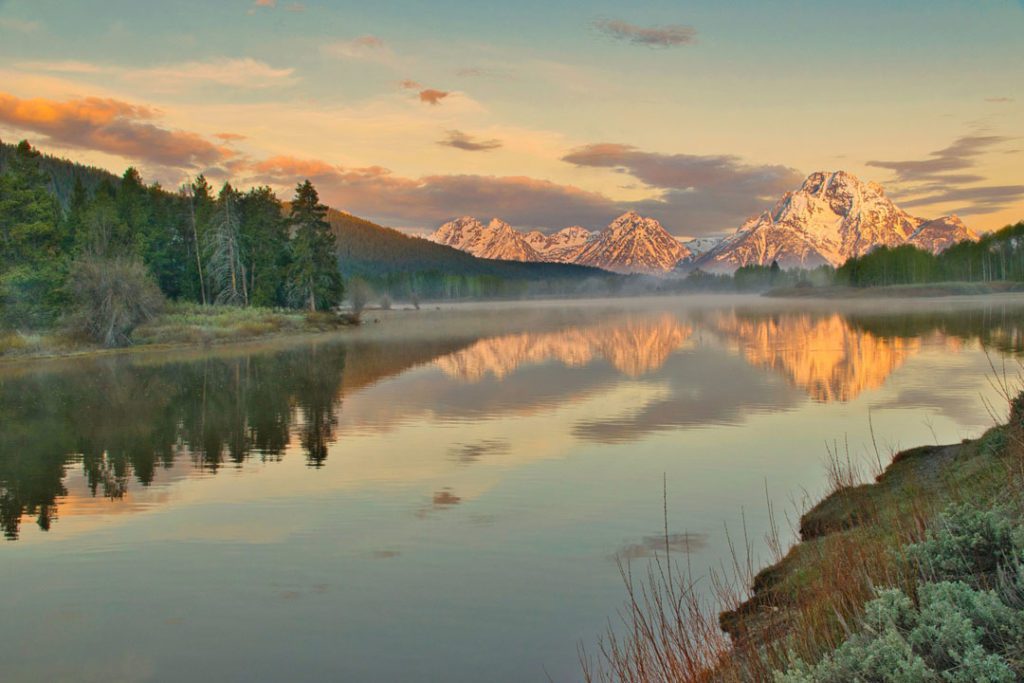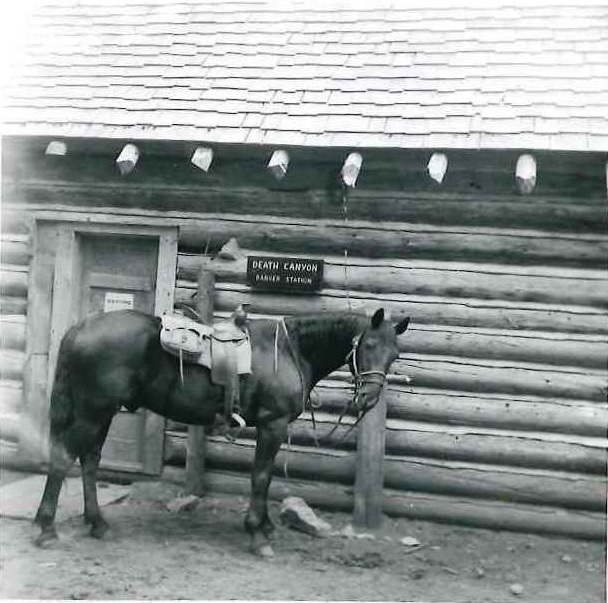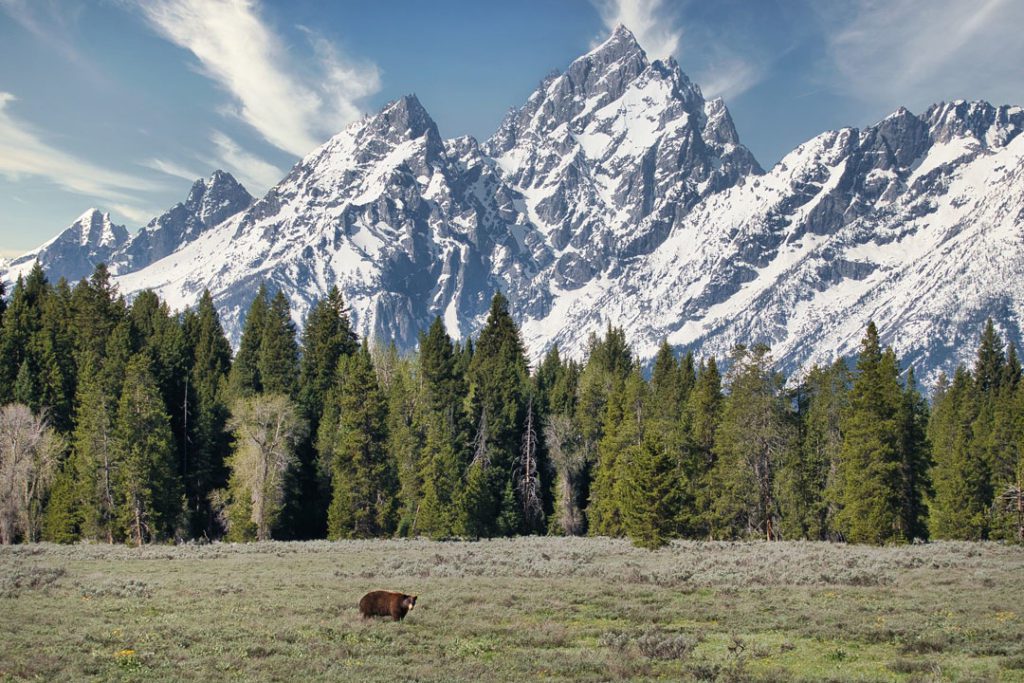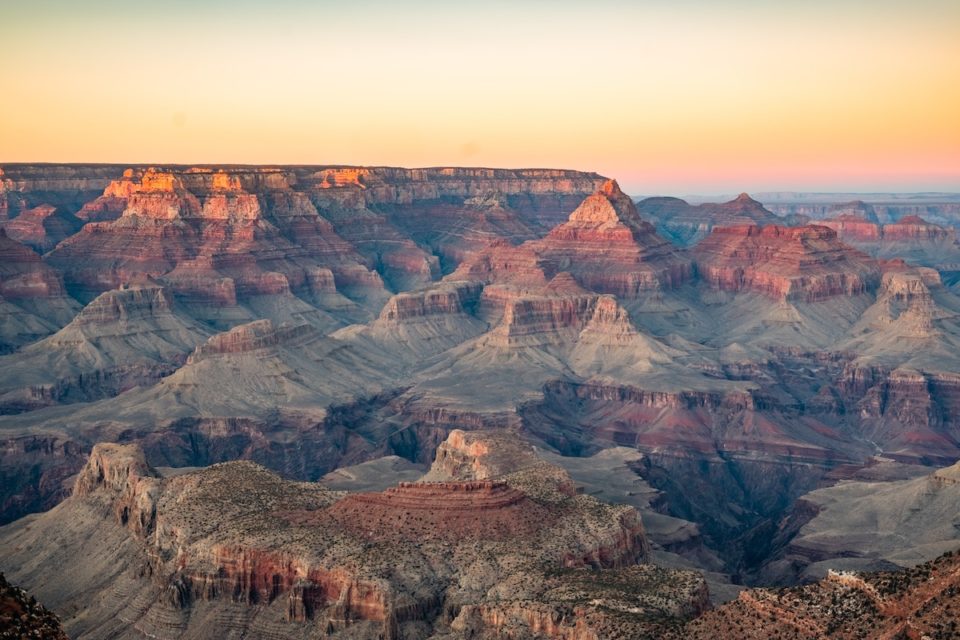King is the initial saddle horse assigned to me when, as a seasonal employee, I spend the summer of 1959 as a backcountry patrol ranger in Grand Teton National Park. My second day on the job—during a dangerous entanglement high up on the steep and precipitous Death Canyon trail—I discover King has a weak foreleg. Having to return him for another mount is a disappointment. He’s a handsome black half Morgan with a fine disposition.

King has already been replaced when I come to work the next morning. My new saddle horse, Spud, is waiting in the corral at the White Grass Ranger Station with Sandy, my packhorse.
For the rest of the summer Spud and I patrol the Grand Teton backcountry. Sandy, corralled at White Grass, trails behind on my weekly re-supply trips into Death Canyon and carries my camp when I’m assigned to conduct two and three day patrols.

Spud is a nondescript little bay, 14 hands, who is sound, a hard worker, and devoted. Reportedly bullied at the ranch by the other horses, he seems content living alone in the mountains with me.
The morning I take delivery of Spud we head out for our first climb into Death Canyon. Spud stops abruptly a quarter mile from White Grass. He waits calmly while a black bear ambles out of the brush and crosses the trail 15 yards ahead of us. Then he moves on. I’m impressed.

Spud can be spooked though. He rears one day when a pair of hikers, napping under a spruce next to the trail, surprise us both by sitting up suddenly. The saddle horn catches me squarely in the sternum, cracking it. For a couple of weeks, getting up from the cot in the morning is the hardest work I do all day.
Spud and I learn to trust each other. When time comes for lunch on patrols, I find him a patch of grass, loosen his cinch, hang his bridle on the saddle horn, and leave him to graze. I look for a shady spot near the creek to eat and, sometimes, take a twenty-minute snooze. When I wake Spud is waiting a few steps away.
Story by Don M. Ricks

